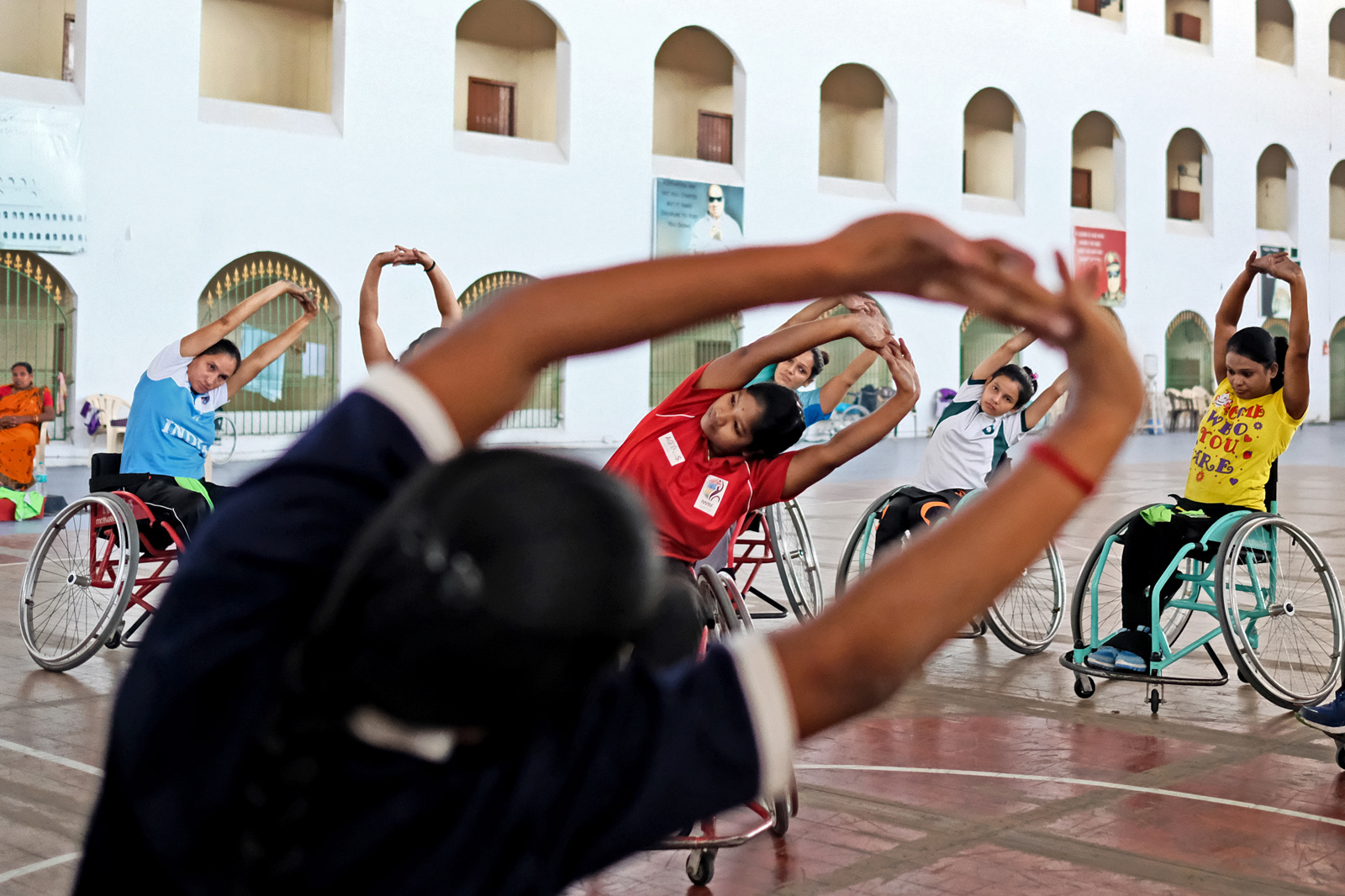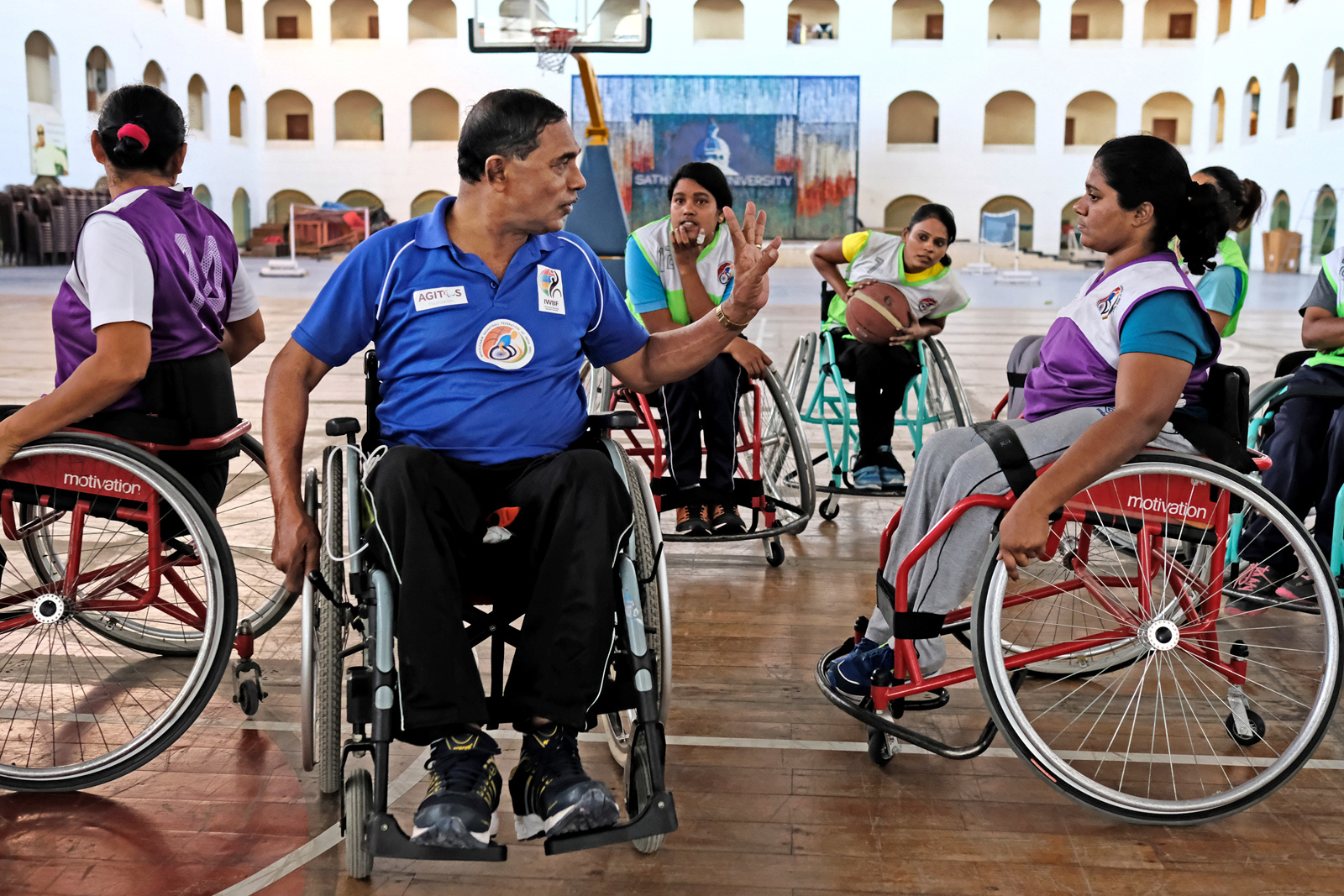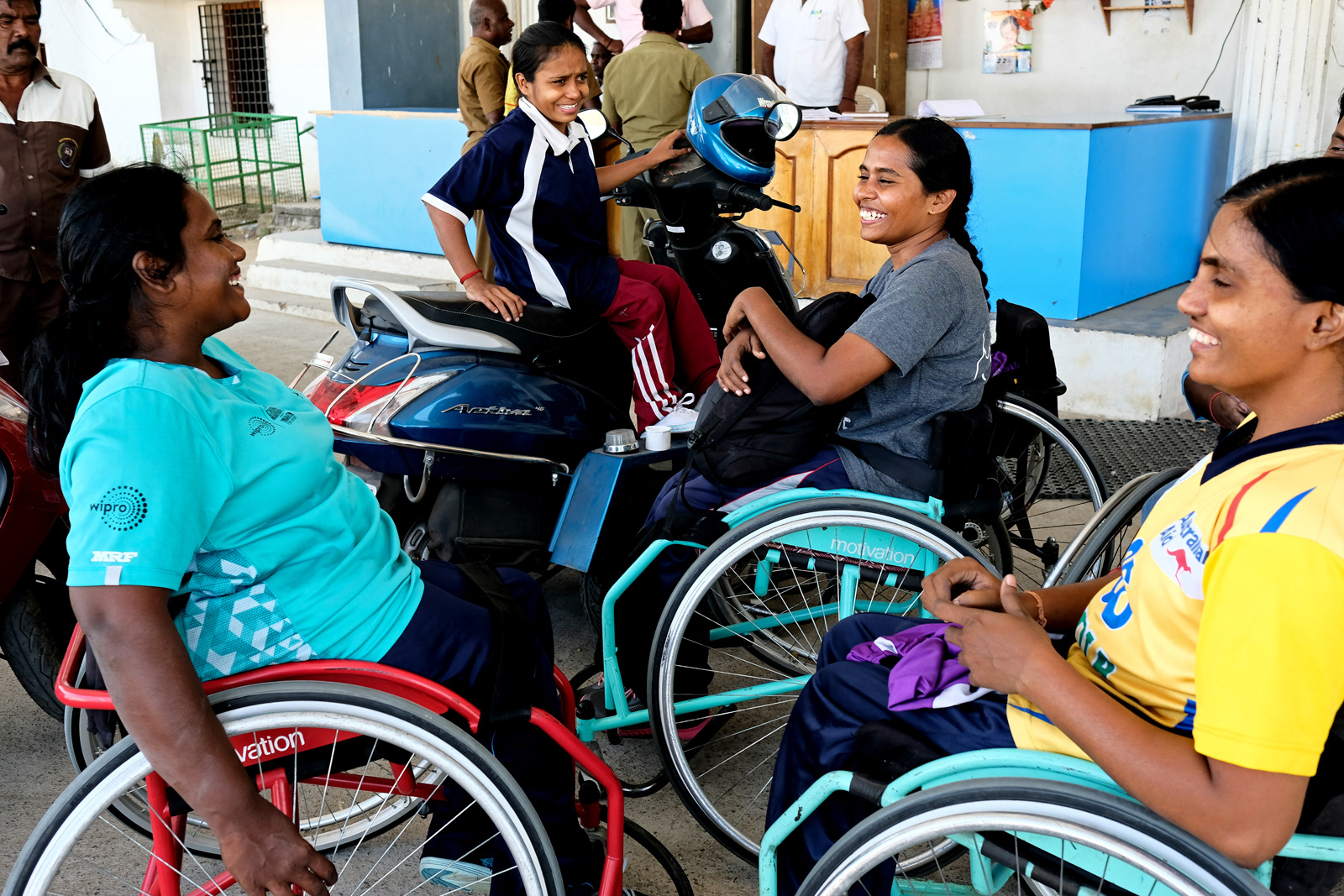With few opportunities to practice as a team due to the work and educational commitments of the players, practice games are intensely contested and very important for coaches to gauge skill levels and evolution.
For 7 hours a day for the duration of the selection trials, the women were put through the paces by the two coaches, who were also the selection committee. Here, in one of many strength exercises, they race in fours with one player pulling three others - a tough task when even moving a single wheelchair is hard work.

Hindu Alayamani (centre) leads the shortlisted candidates in stretches, something that all top flight athletes regard with great seriousness.
At 16 and a half, Rekha (she prefers the single name), from Ghaziabad is the youngest player selected in this Indian team and was one of only two players accompanied by their parents. Her father is a master tailor for fashion designers in Delhi. Despite behind disabled from the age of one and having used a wheelchair for the first time just three years earlier, she’s already a rising star and one of the fastest on wheels in the team.


Rough, calloused and dirt stained hands come with the trade of wheelchair basketball. Often, with no accessible toilets nearby, the women usually use a couple of buckets of water to wash their hands between sessions.
According to the 2016 census, India has almost 2.7 crore people who live with disability. Of this number, around 55 lakh are movement related including almost 21 lakh women. All the players, administrators and coaches gave personal testimony of how this sport had changed their lives, enabling them to live with independence and dignity. This sentiment is best captured by Rekha, who at 16 was the youngest player to be selected for the Indian team, “Lot of people with disabilities are stuck at home thinking they can’t live a normal life but I think that people like me are even better than normal people as we can do many things that they can’t. Nothing is impossible for us. Girls who want to study, play or do anything should get support from their families to get ahead.”